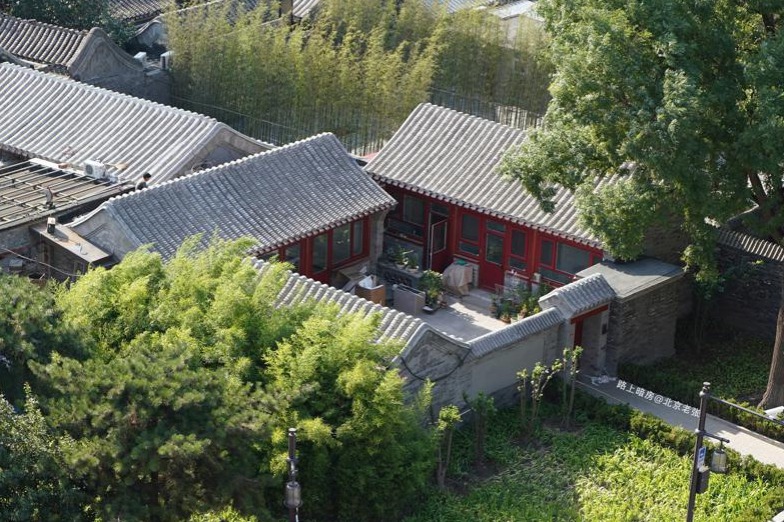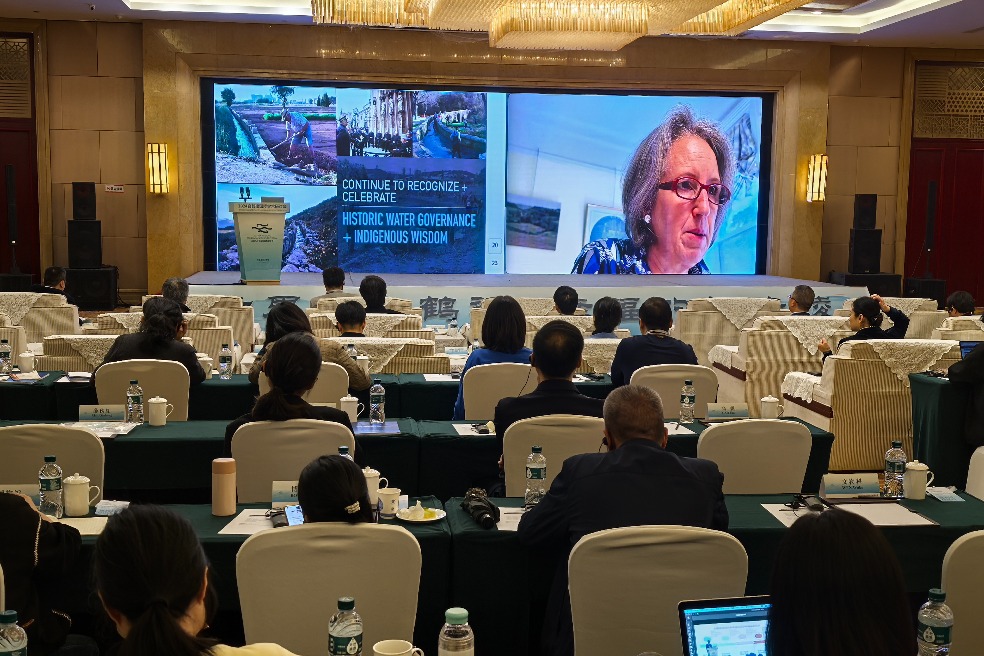Lessons learned from returning to school

I was delighted to come back.
But my recent visit revealed a place I'd never been.
My first journey to Yege township's primary school transformed my life eight years ago. Its geographic location in the township in Qinghai province's Qumarleb county remains the same. But nothing else had, this time.
It was unrecognizable compared with what I'd seen when I first arrived there in 2011 to buy and install two solar panels for the seven tents 78 children called their dorms.
I'd originally believed I was going to put the panels in the school.
But after I arrived, the teachers pointed out the classrooms' windows provided light during the day.
The kids needed electricity to study in their tents at night. That is, while sitting on the elevated wooden boards on which they also slept.
The community's conditions were so dire then that they compelled me to found a volunteer initiative to invest in the county's education. Over the years, my family has provided more solar panels, computers, clothes, food, coal, scholarships, surgeries and even yaks to several schools throughout Qumarleb's nomadic communities.
Flash back to 2011.
Yege's students shared dilapidated desks in basic classrooms and huddled around textbooks in groups because of their scarcity. Their canteen was also a tent. Children sat on the grasslands to eat in summertime.
Tseringben, a friend who was then a teacher at the school, told me about how the students were amazed when he showed them his laptop-the first computer most had seen.
One asked how to "pull the magic paper" out of the top of the screen.
He also told me about how he'd brought foods they'd never hear of, since their diets were nearly exclusively yak meat and dairy, and mutton. Some bit into the eggs and bananas with the peels still on. Back then, Yege only provided classes in math, Tibetan, Chinese and English.
Flash forward to 2019.
I entered through the new gate to see the new buildings, including new dorms for teachers and students. But I was more amazed by what I found inside them. The school was putting the finishing touches on its computer and science labs.
The science classroom was outfitted with not only typical equipment like test tubes and beakers, but also interactive models of human and heavenly bodies, and the actual bodies of animals preserved as specimens, such as those of tadpoles undergoing metamorphosis.
Other rooms were heaped with supplies for the new art, music and physical education classes.
The teachers' education levels have also advanced.
Years ago, few qualified instructors were willing to work at the school because of the extreme conditions. Many had only finished primary or middle school and earned as little as 500 yuan ($73) a month.
But the government, which has been working to bring rural schools up to comparable levels as those in cities, now requires teachers to be nationally certified. The instructors with insufficient education have been given new jobs on campus as groundskeepers, cooks and repair people. And the improved conditions mean qualified new arrivals are more willing to stay in Yege.
The students' dorms are modern buildings that host bunk beds with thick mattresses and quilts.
They not only have electricity, but also-importantly in a place where it snowed even when I visited in late July-electric heating, since burning coal poses the threat of carbon monoxide poisoning.
The spacious canteen serves not only meat and dairy, but also vegetables. Every child gets at least one piece of fruit a day. Yege's school hasn't moved from its physical location over the past 11 years. But it has moved forward, toward the future, in every sense.
- Poisoning at biotechnology firm kills seven, injures four in Shandong
- University students take part in a model CPPCC program
- Hutong offers authentic experience of 'Beijing life'
- Macao SAR chief executive congratulates new-term CE designate
- 7 dead, 4 injured in East China's gas poisoning accident
- Central govt congratulates newly elected Macao chief executive designate




































